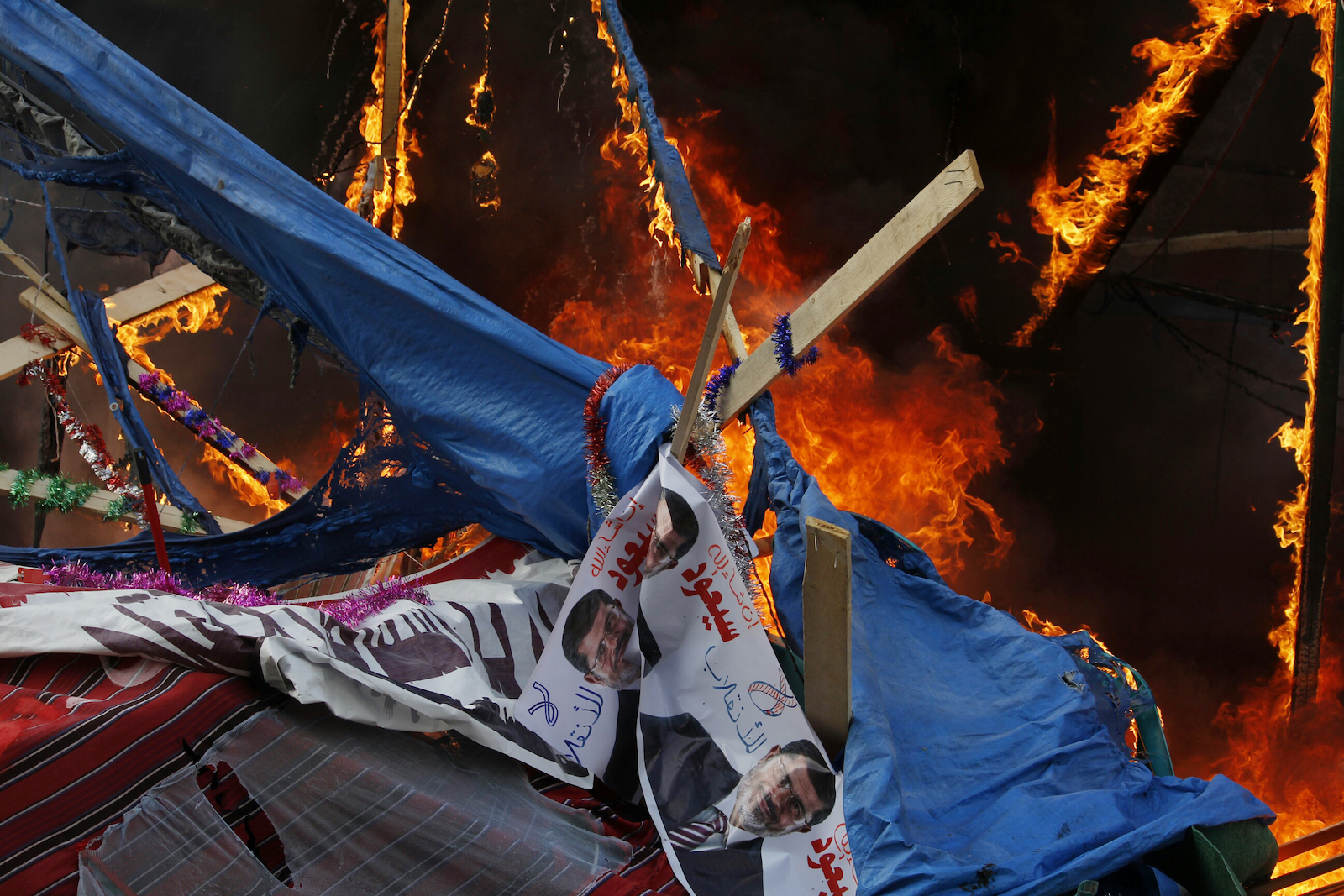
Egypt’s Legitimacy Crisis
Political developments in Egypt – particularly the ousting of President Mohammed Morsi have raised a number of debates on the legitimacy of the Egyptian army’s actions – because it involves the overthrow of Egypt’s first democratically elected president.
Current political debates – both inside of Egypt and around the world, revolve either around support for the army or condemnation for its role in the overthrow of Morsi. Those that support the actions of the military argue that Iran serves as a stark reminder of what Egypt might become under the Muslim Brotherhood whereas those who criticize and oppose military involvement remind the public of the brutal clashes in Algeria which started in 1992 following the electoral victory of Islamists’ and the intervention of Algeria’s military to topple an elected government.
In either case, it is first important to determine if what occurred in Egypt is tantamount to a “coup” or if it is a completely different phenomenon altogether. Assuming that it was indeed a coup, one must question whether all military coups are identical in nature, or if they can be differentiated according to their motives and/or outcomes? A classic example of the dynamic nature of military coups is Portugal’s in 1974, which became known as the “Carnation Revolution.” The movement was initiated by the Armed Forces Movement (MFA) and it rapidly gained public support and popularity, which finally brought about the collapse of the Estado Novo and subsequently, restored democracy in Portugal.
In order to analyze Egypt, it may first be necessary to avoid “blanket assumptions.” For instance, the assumption that all military coups are necessarily an unfortunate development or that all elected regimes are good. Simultaneously, there is also a need to differentiate between the two concepts of “elected” and “democratic.”
There have been a number of rulers throughout history who were elected by the people but practiced little, if any, democratic values. A case in point was Adolf Hitler. Consequently, one may argue that the same holds true for Morsi, which is why it is first necessary to examine Morsi’s political behavior until his overthrow.
From a democratic perspective, the proper manner in which to replace a government would be through a democratically run electoral process. Within the context of political science, the defeated party accepts its defeat and in doing so, upholds the will of the people and cedes power. However, what if it is the victorious party that refuses to comply with the values and tenets of democracy? What then? The political behavior of Morsi’s government provides us with such a scenario.
For one, none of the fundamental promises made by Morsi and his Muslim Brotherhood to Egyptians during their campaigns were fulfilled. Initially, they claimed that they had no intention of participating in the presidential election and that the Muslim Brotherhood would remain a political party within the Egyptian parliament. However, this promise was broken when the party took over the presidential office; similarly, they also promised the Egyptian people that they would form a national reconciliation cabinet but this also turned out to be an empty promise.
Toward the last few months of Morsi’s rule, most Egyptians were unable to differentiate the attitudes of Morsi’s government from those of his predecessor – Hosni Mubarak. To many Egyptians, the thought of being governed by an individual who had no interest in upholding democratic values and instead was interested only in confiscating legislative, executive and judicial powers for the next three years was impetus enough for them to take to the streets and demand his resignation.
It is important to acknowledge that without military intervention, Egypt was in real danger of falling into a civil war between pro and anti-Morsi groups. The army holds a favored position in Egyptian society and this was one of the primary reasons as to why the army decided to overthrow Morsi. In order to place things in perspective, approximately 15 to 20 million Egyptians were peacefully demonstrating for days in the streets asking for Morsi’s resignation; continuous disregard to the people’s wishes by Morsi’s administration would only have provoked them further and caused nation-wide violence. Morsi however, had no intention of stepping down, or negotiating, as was evidenced by his indifference to the one-week moratorium set by the army to negotiate.
As Egypt lacks strong civil institutions (political parties, NGOs, unions, etc.) to deal with such a crisis, the army appears to be the only authority capable of restoring public order and curbing widespread violence throughout the country. That being said, it should be made clear that the role of the army should serve only to maintain the peace and that its purpose should not exceed that of a “catalyst” for democratic change. It may also be worthwhile to note that the scenario in Egypt could have been far worse had it not been for the intervention of the military. Although the increasing number of casualties in the recent clashes between the army and police and pro-Muslim Brotherhood protesters is worrisome, the army appears to be making progress in keeping the clashes under control.
More than 1,400 members of the Muslim Brotherhood were arrested during the clashes. Since President Morsi’s removal in early July, Muslim Brotherhood members and supporters have attacked churches, police stations, homes and businesses of Christians, and in the process, turned public attitudes against the group. For now, Egypt appears to be on the brink of another critical turn in its modern history. Time will tell whether this violent cycle will simply repeat itself over the coming weeks and months but whatever the outcome the political establishment and the military needs to prove themselves as legitimate institutions.


